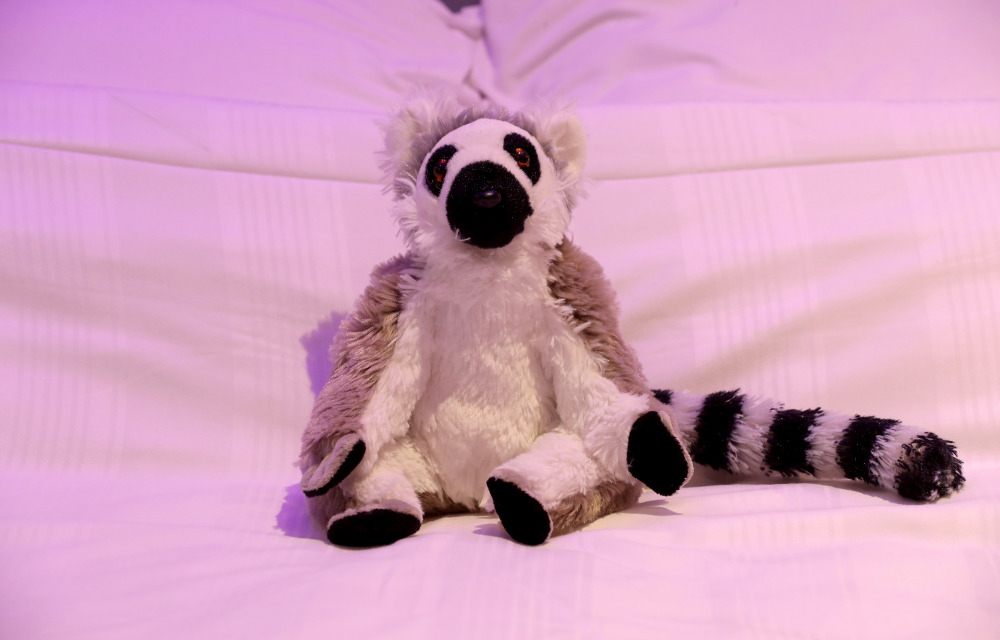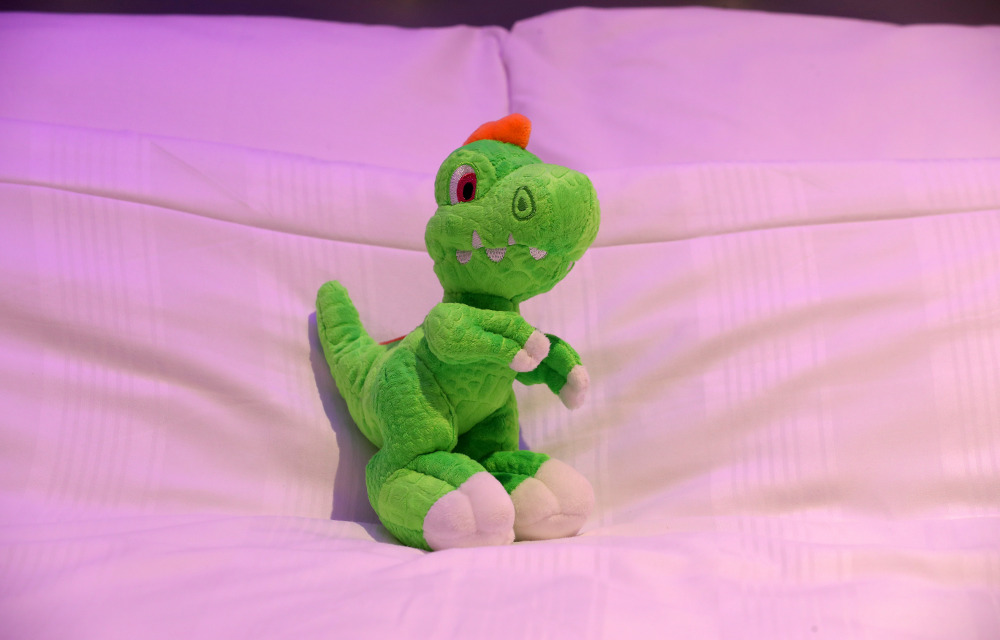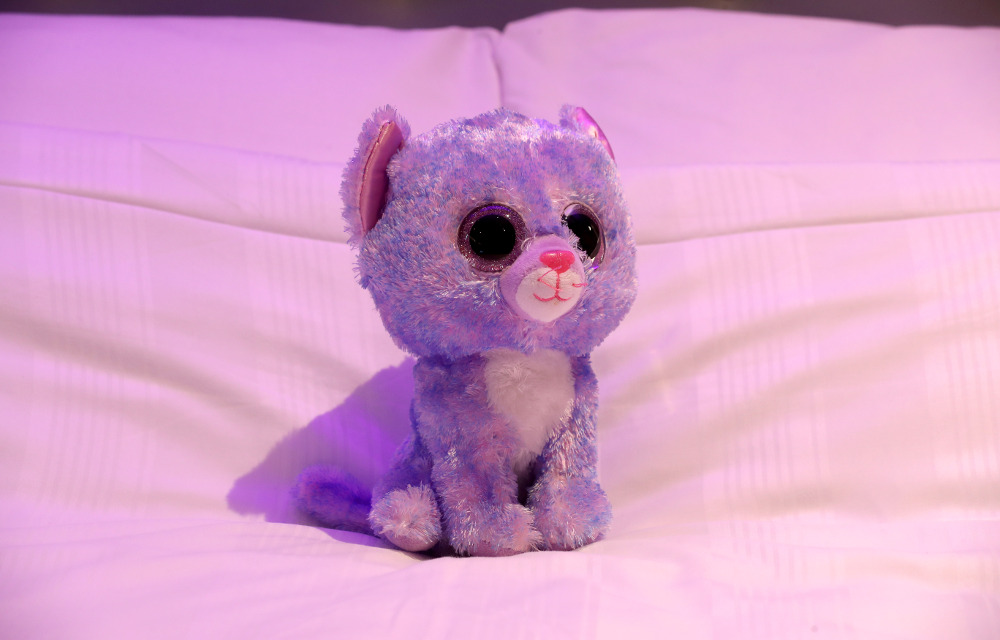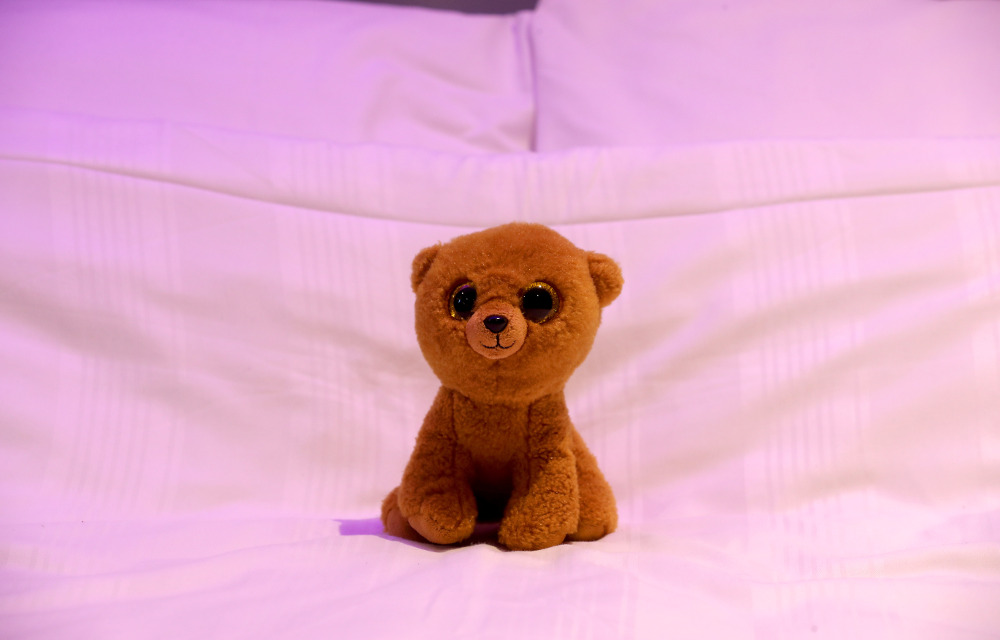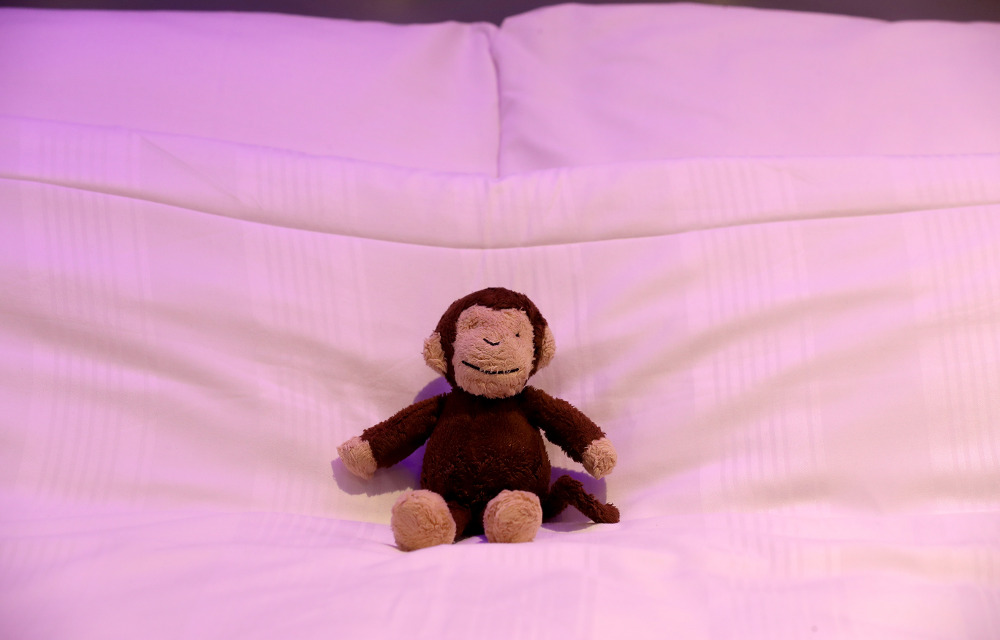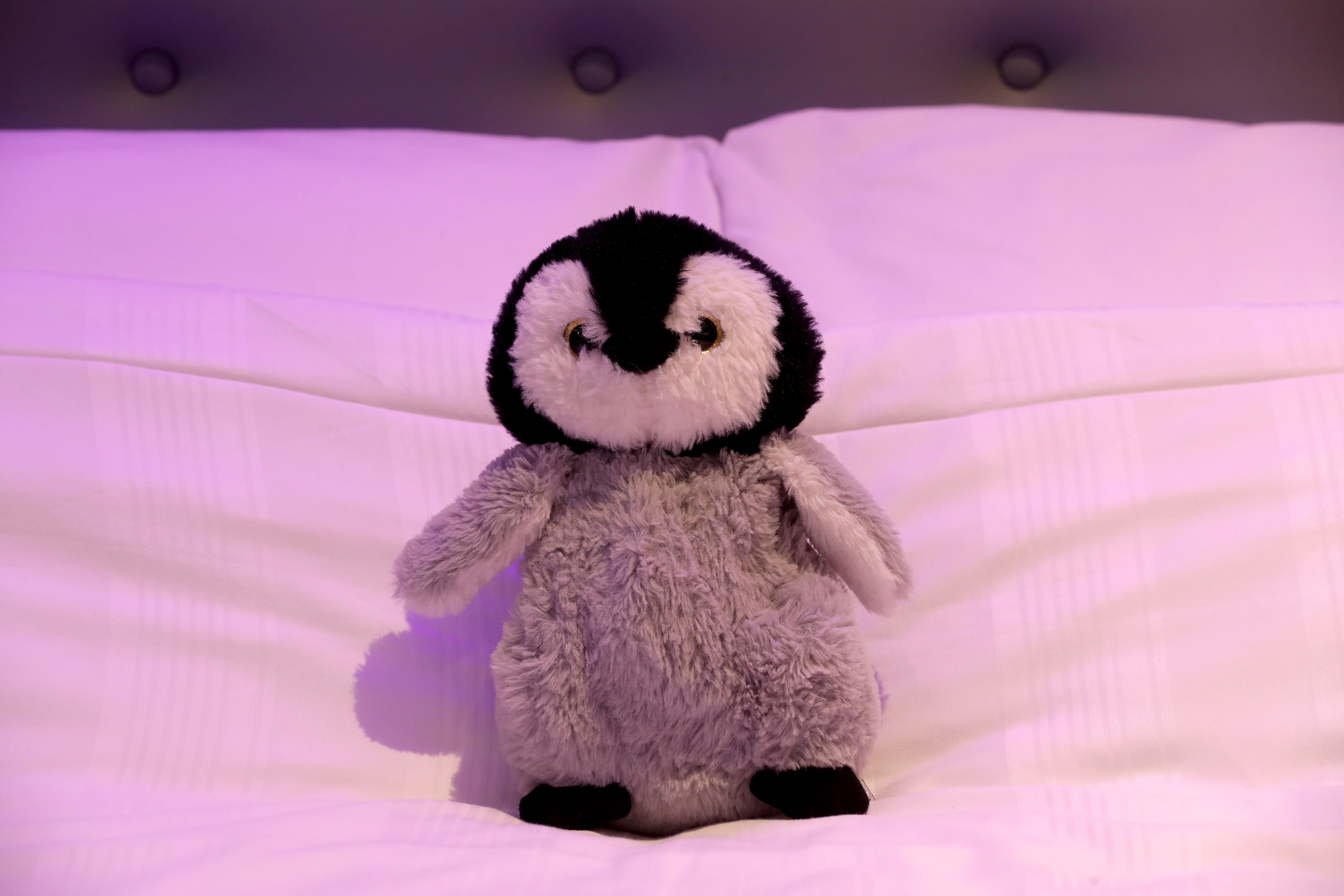For children across the country, a comfort toy is so much more than just a bedtime buddy, it’s a constant companion, a source of reassurance, and in many cases, a non-negotiable part of the nighttime routine. Whether it’s a teddy, blanket or bunny, these beloved items bring calm and consistency, especially when the world feels big and unfamiliar. In fact, they’re such a fixture of daily life, that 89% of parents say their children sleep with one.
Introducing: The Teddy Bear Reunification Project
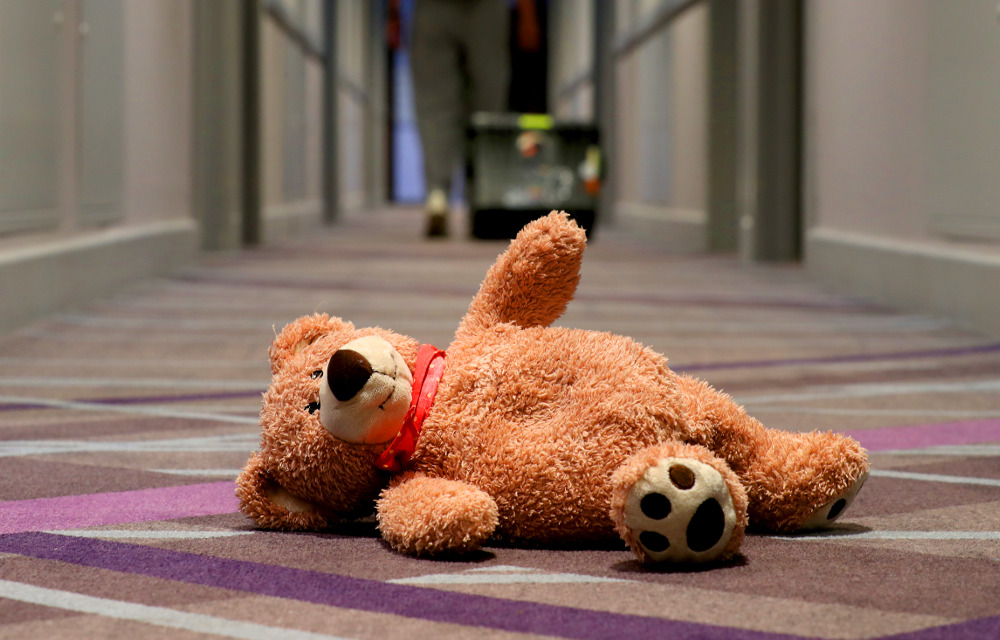 Teddy Bear Reunification Project
Teddy Bear Reunification Project
It’s no surprise then, that when they go missing or get left behind, it results in heartbreak. Many children still ask about their favourite teddy months after losing it and some parents feel they’ve ‘lost part of the family’.
It happens more than you might think too, especially when it comes to holidaying. The majority (61%) of parents say their child’s favourite toy has been lost while traveling and over a third (39%) say that sadly, they’ve never been found.
It’s something we see a lot in our hotels, with the rush of leaving an airport hotel in particular being a prime candidate for a forgotten teddy.
Our team has always tried to help, giving the teddy a happy hotel home before hopefully reuniting it with their rightful owner, but as this isn’t always possible – we're taking things a step further and launching the Teddy Bear Reunification Project!
Find your lost Teddy so it can get back home
As part of a three-month trial with our Gatwick Airport (North Terminal) hotel, which is incredibly popular during the summer months as families jet off on holiday, guests can now locate their lost comfort toys in the Lost Teddy Gallery below. A virtual line-up of forgotten bedtime companions, waiting patiently to be claimed, each toy has been carefully photographed and logged by our team, in the hope that one day, their name, and their family, will be found again.
You’ll find all kinds of faces in the gallery each with their own story to tell. If your child’s beloved toy has disappeared during a recent stay with us, this is the first place to look.
If you’ve recently stayed at Premier Inn Gatwick Airport (North Terminal) and believe a comfort toy was left behind, simply send us an email to teddiesreunited@premierinn.co.uk.
Owners will need to share proof of their booking and details of when the teddy was lost to verify ownership. Once ownership has been verified, the Premier Inn team will ensure that the teddy is lovingly prepared for its return home and delivered back to you safely.
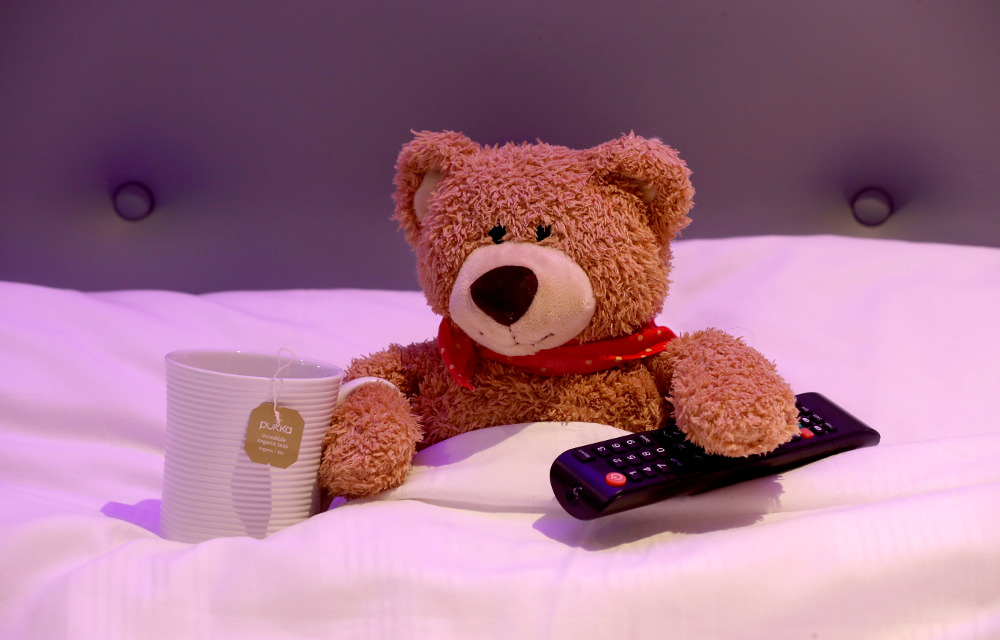 Teddy Bear Reunification Project
Teddy Bear Reunification Project
What will my Teddy be doing in the meantime?
Rest assured that whether your favourite teddy has been lost at our Gatwick North Terminal hotel, or one of our other airport hotels or even up in the Scottish Highlands, it’ll be treated to a safe, relaxing stay by our team. If it fancies, it might even help out around the hotel!
What happens when teddies can’t be reunited?
Unfortunately, the reality is that some teddies may never be reunited; in situations where soft toys are in our care for more than three months, they may be donated to the soft toy adoption agency, Loved Before, who we’re working with during this trial. They’ll then receive a thorough “Spa” treatment before being matched with their new home, with the organisation supporting incredible charities including Make-A-Wish UK.
Why has Premier Inn launched the Teddy Bear Reunification Project?
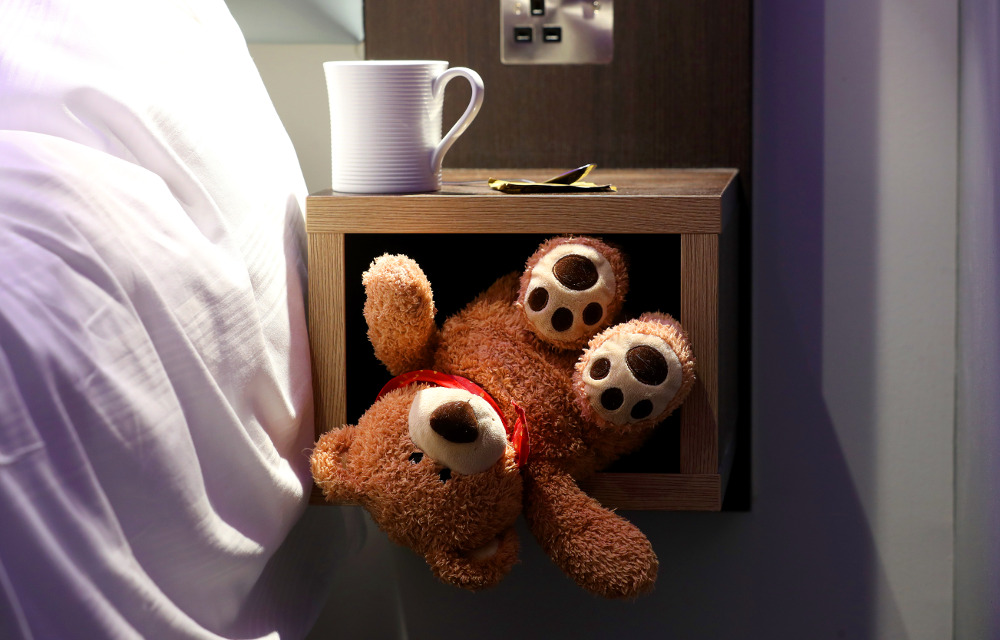 Teddy Bear Reunification Project
Teddy Bear Reunification Project
Beyond what we mentioned above, our survey uncovered the heartbreak of a lost teddy, and why it is so important for us to reunite them with the whole family. Nearly half of parents (46%) say their child was upset and took a few days to bounce back after the sadness, but for some children, the distress lasted much longer. One in five parents even said their child still asks about the toy, weeks or for some, months later.
For many families, the impact went beyond just tears at bedtime too, with 22% of parents saying the loss negatively affected their child’s sleep, highlighting just how deeply embedded these comfort toys are in children’s emotional and physical wellbeing.
Certified Child Sleep Consultant Naomi Hillard explains,
“Research shows that children who sleep with comfort toys, such as teddies, tend to experience better sleep quality, meaning the loss of these items can negatively affect their sleep. These toys can help reduce nighttime anxiety, leading to fewer sleep disturbances. The emotional support provided by a soft toy can promote a sense of security, which allows children to fall asleep more easily and stay asleep longer.”
When a bedtime soft toy is lost, according to Naomi, being honest with your child about what has happened is always the best option.
Naomi has also shared her top tips to help parents navigate these tricky teddy related tears:
- Acknowledge feelings: “It’s important to acknowledge how your child is feeling and acknowledge that their feelings are both valid and very much okay”.
- Offer alternatives: “If possible, introducing another comforting object like a blanket or a different soft toy can be helpful, as can involving your child in the process of finding this new comfort item. This allows them to feel a sense of control over the situation and can also provide some sense of closure”.
- Maintain routine: “Keep the bedtime routine consistent to provide a sense of normalcy and security during this time”.
- Encourage imagination: “Encouraging your child to use their sense of imagination about what the lost toy is doing can also be helpful, for example, suggesting that the toy is on an adventure and may return with lots of stories to tell”.
But it’s not just children who feel the impact of a forgotten teddy - a quarter of parents (26%) admitted to feeling guilty for losing or not protecting the toy, while one in ten (11%) described it as feeling like losing part of their family routine.
It’s not that parents give up easily in their bid to reunite their little ones with their soft toys either; one in three (32%) parents have hopped back in the car and headed back to a hotel in search of a lost toy, while a quarter have had one posted or delivered back to them by helpful hotel staff.
With the loss of a teddy having such an impact, many parents are also going to even greater lengths to prepare in case the worst happens, with more than half (56%) of parents already owning a spare or duplicate of their child’s favourite comfort toy. A further 26% said they meant to but never quite got around to it, showing just how common and feared this scenario is. Only a small minority, 18%, say they haven’t bought a backup and don’t intend to.
Top tips for travelling with a Teddy
To help make sure that beloved soft toys do come home safe, Charlotte Liebling, CEO of soft toy adoption agency, Loved Before who we will be donating any unclaimed teddies to, has shared a few things that families can do to keep teddies visible and avoid getting lost along the way:
- Give them a ‘teddy task’
For every trip away from home, get your child to assign their toy a travel role like ‘seatbelt monitor’ or ‘pillow tester’. Getting them involved in the trip by playing a role will help them to be front of mind and close at hand at all times, so it’ll be noticeable if they aren’t there.
- Take a “before” photo
We take photos at all stages of a trip, so make sure your teddy is included in a pre-trip snap too, as well as others along the way. If the worst happens and a toy does go missing, it makes it much easier for hotel staff, or anyone else helping, to search and identify them.
- Avoid the bedsheets
Although snuggling up in bed with a teddy is very comforting, bedsheets are a lost toy’s worst nightmare. Before leaving the room, make sure that any teddies are placed somewhere where they can be clearly seen, such as on a background that’s different to their own colour or texture, and away from the bed.
- Use a name tag
While travelling, it’s worth popping a small label around a teddy’s neck, wrist or ankle with a phone number and note such as “If found, please contact Mum!” - we label our luggage, and teddies are precious cargo too!
- Add a tracker
If your child has a toy that they’re particularly attached to and can’t sleep without, it may be worth considering using an AirTag to keep track of it. Whether in your child’s travel bag or slipped inside the toy if it’s safe to do so, being able to track teddy at the click of a button could be a simple way to get peace of mind.
Lost a teddy and identified them in the images above? Don’t forget to contact teddiesreunited@premierinn.co.uk
Methodology:
Data gained via a survey of 500 parents of children aged 1-12. Data correct as of July 2025.
